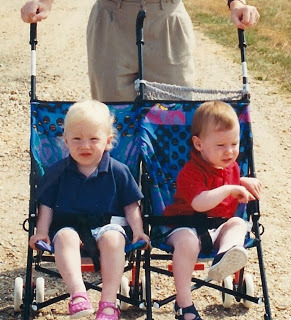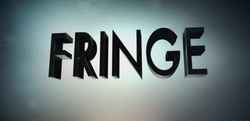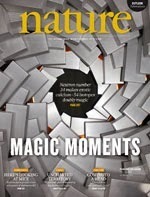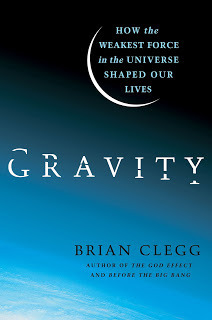Brian Clegg's Blog, page 109
October 22, 2013
Putting sport into perspective
 More important than gamesThere was a lot of fuss in some sections of the news recently about runner Mo Farah having problems because someone pushing a child's buggy in the park where Mo was trying to train wouldn't get off the path to keep out of Mo's way.
More important than gamesThere was a lot of fuss in some sections of the news recently about runner Mo Farah having problems because someone pushing a child's buggy in the park where Mo was trying to train wouldn't get off the path to keep out of Mo's way.Now I'm sure Mo is a nice guy, and was very polite, and there certainly shouldn't have been the fight that ensued. But I also am sure that the media outrage that poor old Mo had to suffer so much by not having the path to himself because of this unreasonable father was ridiculous.
Let's get the picture in perspective. Mo is very good at a game, the playground game of 'Who can run fastest?' He's one of the best people in the world at this particular game, and that's lovely for him. But compared with keeping a baby or toddler safe, it is a totally worthless activity. It's fine in its place. If he had been training on a running track and the father and started pushing his pushchair round the track, then of course Mo would have had every right to ask him to get out of the way. But this was a public park, paid for by public money so the public could enjoy using it for, say, pushing prams - not a sports training facility. And for that matter, feet are much better at getting along on grass off the path than buggies are. If anyone was going to get out of the way, it should have been Mo.
When our twins were young we had a double buggy and quite often it would be difficult to get along the footpath because some idiot had parked on the pavement far enough in that there was quite a narrow gap between the car and a wall or a hedge. Well, I'm sorry, again the children came first. Rather than go into the road, I would happily scrape my buggy along the side of their car, bash into their wing mirror and generally be as vigorous as possible, because I was in the right place and the car wasn't, and because babies matter more than cars.
So don't ask me to have any sympathy for Mo. He did not have priority because he was the 'big I am' sportsperson. In the right place - and this was the right place - children should always come first.
Published on October 22, 2013 00:28
October 21, 2013
The honourable physicist
 CERN's Alpha Project mentioned below - image courtesy of CERNI had a very interesting exchange with a physicist the other day which I think really helps underline the difficulties of getting science right.
CERN's Alpha Project mentioned below - image courtesy of CERNI had a very interesting exchange with a physicist the other day which I think really helps underline the difficulties of getting science right.I had asked this person 'do you have any personal expectations (or even hope!)' about the outcome of an experiment. His response was 'As an experimentalist, I must be completely unprejudiced about
the outcome of our experiments. So I don't have any expectations.'
Now, in answering one part of my question he was entirely correct and proper. But as far as the other part goes, assuming he is a human being and I wasn't communicating with a robot, he is fibbing. The right and proper part is having no expectations. We now recognize that it is very important that an experimental scientist does not prejudge the issue and expect an experiment to come out a particular way. This is because there is plenty of evidence of the 'experimenter effect' where an individual's expectations colour their interpretation of the data.
The archetypal experiment designed to demonstrate this kind of unconscious experimenter bias was a trial undertaken in 1963 involving albino rats and, more importantly, young scientists who believed they were experimenting on the rats, but in truth were themselves the experimental subjects.
Robert Rosenthal and Kermit Fode of Harvard University set up an experiment where twelve psychology students were given five rats each to test on a simple T-shaped maze. All the rats were from the same stock, but one group of the students was told that they had especially bright rats, naturally suited to solving mazes, while the other group was told that their rats were of a less able strain that struggled with maze solving. Those with the bright rats were instructed that their animals would show clear learning during the first day of running the maze and after that their performance would improve rapidly. The subjects with the “dull” rats were told that their experimental subjects would provide little evidence of learning.
Both “types” of rat (bear in mind that all the rats were identical in ability) did prove to have performances that improved over time, but every day over the five day trial the “bright” rats were recorded as performing better than their peers, achieving successful runs up to twice as frequently as the “dull” rats, and getting to a successful conclusion significantly quicker than their supposedly slow counterparts.
When dealing with bright rats, experimenters could have encouraged them more, given them more positive handling, which could have influenced actual performance. This is unlikely to be a problem with a physics experiment. However - and this applies to all kinds of experiment - true improved performances were not necessary as the experimenters could easily have biased the results, even though they could be totally unaware that they were distorting the data.
One possible approach that would shift the results to match the experimenters’ expectations would be if they counted borderline runs as successful with bright rats, but not with dull ones. They might also have decided to be selective about which results to record because of some apparently sensible reason (perhaps the rat was distracted by a loud noise), cherry picking positive results. And there are other, more subtle ways available for experimenters to fool themselves.
So even though some of the greatest scientists in history have had a tendency to ignore adverse results because they knew their theory was right (Newton is a good example), it is isn't an appropriate thing for a modern scientist to do. The physicist I was emailing was absolutely right to have no expectations.
However, the reason I suspect my contact of fibbing is that it's one thing not to have expectations and it's another not to have hopes. The only kind of scientist who could be totally devoid of hope and simply carry out an experiment as a wholly neutral observer has lost his or her humanity. You might think they shouldn't care about the outcome, that all outcomes should be equally interesting, but the fact is that all outcomes aren't equally interesting - at least this is true in many cases. And to pretend otherwise is a subtle form of deceit.
Take, for instance, the Alpha experiment at CERN. If everything goes to plan, phase 2 of this may well tell us in the next few years, the answer to a question that has fascinated physicists for a long time. Under the influence of gravity, does antimatter act the same as ordinary matter, or does it feel an opposing force? Would it float up rather than fall to Earth? We just don't know, because we've never had enough antimatter to measure the very weak pull of gravity.
Now, the emotionless robot scientist, the hypothetical textbook scientist, doesn't care which outcome we get. Each has exactly the same reward value - it is a result, tick, move on. But I don't think any human can honestly say they wouldn't get a thrill if antimatter acts as if it was experiencing antigravity and is repelled by massive objects. That would be just so much more exciting than if it acted like ordinary matter.
That being the case, while I can only commend the scientist I was emailing for his lack of expectations, I am very sad if he truly was without hope.
Published on October 21, 2013 00:02
October 18, 2013
Is it time to get rid of faith schools?
There has been a lot in the news about the dire failure of the Al-Madinah free school in Derby, mostly debating whether this shows that the Conservative free school policy is flawed, or whether this is merely a blip, because more free schools are outstanding/good than are traditional schools. However there are some aspects of the problems there - limited curriculum, segregation and inequality of treatment of boys and girls (and female teachers) - that could just as easily be put down to this being a faith school.
I really wonder if the time has come to ask if we should allow religious groups to dictate what goes on in a school at all. It's not that I oppose religious freedom, but I do wonder if it is appropriate for religions to be indoctrinating children at school, at the age when they are most likely to take religious instruction as fact, rather than question it and decide if it is appropriate for them as adults would do. If parents want to encourage their children into their faith themselves, that's one thing, but coming from an 'official' source like a school is very different.
Don't get me wrong. I am not saying that there aren't many excellent religious schools. We've all heard about parents turning up at church with the sole intention of getting little Hermione into the local faith school because the education there is so excellent. But I am not sure that this is a good enough reason to keep this strange religious/educational crossover going.
I haven't experienced this directly. I didn't go to a faith school, and neither did my children, but I have known people who have and certainly did receive something of an indoctrination while attending. This seems to be less of a problem with C of E schools in my indirect experience - but it certainly often seems to be the case with, for instance, Catholic and muslim schools.
Faith schools simply don't fit with modern British society, any more than we would expect to be looked after by nuns in a hospital. The trouble, I suspect, is that Labour and the Liberal Democrats don't want to change things to avoid offending ethnic minorities, while the Conservatives are worried about upsetting Jemima and Oliver's parents. But perhaps it is time that these anachronistic establishments were done away with.
I really wonder if the time has come to ask if we should allow religious groups to dictate what goes on in a school at all. It's not that I oppose religious freedom, but I do wonder if it is appropriate for religions to be indoctrinating children at school, at the age when they are most likely to take religious instruction as fact, rather than question it and decide if it is appropriate for them as adults would do. If parents want to encourage their children into their faith themselves, that's one thing, but coming from an 'official' source like a school is very different.
Don't get me wrong. I am not saying that there aren't many excellent religious schools. We've all heard about parents turning up at church with the sole intention of getting little Hermione into the local faith school because the education there is so excellent. But I am not sure that this is a good enough reason to keep this strange religious/educational crossover going.
I haven't experienced this directly. I didn't go to a faith school, and neither did my children, but I have known people who have and certainly did receive something of an indoctrination while attending. This seems to be less of a problem with C of E schools in my indirect experience - but it certainly often seems to be the case with, for instance, Catholic and muslim schools.
Faith schools simply don't fit with modern British society, any more than we would expect to be looked after by nuns in a hospital. The trouble, I suspect, is that Labour and the Liberal Democrats don't want to change things to avoid offending ethnic minorities, while the Conservatives are worried about upsetting Jemima and Oliver's parents. But perhaps it is time that these anachronistic establishments were done away with.
Published on October 18, 2013 00:27
October 17, 2013
Hanging on by fingernails
 One of the big benefits of Netflix has been bringing to me some excellent US series that I haven't tried before. Although a little hokey, and suffering from the 'Charlie Hungerford syndrome*', I have very much been enjoying watching Fringe, and recently got to the finale of episode 2, which has a whopping great cliffhanger. I would like to respectfully ask makers of US TV shows not to do this.
One of the big benefits of Netflix has been bringing to me some excellent US series that I haven't tried before. Although a little hokey, and suffering from the 'Charlie Hungerford syndrome*', I have very much been enjoying watching Fringe, and recently got to the finale of episode 2, which has a whopping great cliffhanger. I would like to respectfully ask makers of US TV shows not to do this.Here's the thing. I absolutely love shows with a story arc - ones where as well as the specific story of the episode there is a building theme that runs through the whole season. The show that most springs to mind for bringing this to my awareness is Buffy, though I faintly remember being captivated by The Fugitive and The Invaders as a child, both of which I think had arcs.
But here's the thing. As we all know, TV scheduling is a ferocious, dog-eat-dog business that rarely deals fairly with its viewers. I mean, come on, they cancelled Firefly, one of the best shows I've ever seen. So any show might not come back after the end of the season. Which means if you leave us on a cliffhanger, we could be frustrated and bitter for the rest of our lives. Joss Whedon was able to deliver some satisfaction with the movie Serenity closing off Firefly, but this is a rare opportunity. If Fringe had ended forever with Olivia in the mess she's in at the end of season 2, I don't think I could ever have forgiven the makers.
So be kind, show producers. By all means leave lots open and available for future seasons, but don't leave the main characters in peril in the finale. It's just not cricket, or even baseball.
* The Charlie Hungerford syndrome refers to a UK TV series called Bergerac in which one secondary character seems to be involved some way or other in practically every crime investigated by the eponymous main character. In Fringe, Walter seems responsible for practically every new invention (in any science or technology) known to man, something that seems to be parodied in the 'storytelling' episode in season 2.
Published on October 17, 2013 01:03
October 16, 2013
Nature news
 Not this NatureNo, when I refer to Nature I don't mean that estimable scientific journal - this is the real thing. According to a report by a charity only '21% of children aged 8-12 are "connected to nature".' This study has to be one of the worst ever made of this sort of subject, so much so that I would suggest it has the potential to get some of its findings totally back to front (though this doesn't prevent the BBC reporting it with a totally straight face).
Not this NatureNo, when I refer to Nature I don't mean that estimable scientific journal - this is the real thing. According to a report by a charity only '21% of children aged 8-12 are "connected to nature".' This study has to be one of the worst ever made of this sort of subject, so much so that I would suggest it has the potential to get some of its findings totally back to front (though this doesn't prevent the BBC reporting it with a totally straight face).I have two big issues with this study. One is sample selection, the other is criteria.
But first let's see what the shocking headline results were. That 21% value was based on having 'realistic and achievable' connection with wildlife and the natural world. Apparently 27% of girls were at or above this target, but only 16% of boys. There were also regional variations. Wales did worst, while London was best in England. Urban children had a slightly higher connection than those living in rural areas. Immediately that rings some alarm bells. I have lived both in towns and in a country village, and I can tell you for certain that the country village children had a much more immediate connection with nature - so what's going on?
Okay, first sample selection. We are given no information how the main sample was made up. The only information on selection given is that that 'realistic and achievable' target was based on the average scores of children visiting RSPB sites or who are junior members of the RSPB. But if that example of selection is anything to go by for the whole, there is an issue. Because children visiting RSPB sites etc. are a very particular subset, with a very particular approach to nature that would be very different, I suspect to a much more connected farmer's son who enjoy shooting a few pigeons for fun. Their selection of the control sample is likely to be hugely biassed towards middle class urban tree huggers.
The other problem I have is the definition of a natural connection, which apparently included:
Empathy for creaturesHaving a sense of oneness with natureHaving a sense of responsibility for the environmentEnjoyment of natureI really struggle with some of these. 'Having a oneness with nature'? Pass the sick bag. Anyone who thinks they 'have a oneness with nature' hasn't a clue about the natural world which has just as much unpleasantness as it has fluffy bunniness. (Those bunnies probably have myxomatosis, after all.) Let me suggest some alternative criteria that might come up with a different urban/rural split:Walks to school through a fieldHas seen an animal dieUnderstands the importance of pest controlKnows the impact of the seasonsetc.It's so arbitrary.
Don't get me wrong, I do think not enough children are really exposed to nature. When I was six my mother was doing teacher training to be a biology teacher and we used to spend our weekends searching for pond life and tracking down wild rabbits. It was a great introduction to the natural world. I also had a friend who had a sheep farm (old fashioned enough not to have running hot water) and saw the raw side of nature that way. For that matter, we played out in nature every day, largely unsupervised by adults, a great way to learn. Far too many of today's youngsters spend too long in front of the TV and games console - or playing team games in artificial environments - or indulging in other urban pastimes. But I think visiting RSPB sanctuaries and establishing a 'sense of oneness with nature' is not what it's about and won't generate the next generation of naturalists and nature lovers.
Published on October 16, 2013 01:02
October 15, 2013
Read the words, guys!
 No, not this Gravity.I was slightly disappointed though not at all surprised to see that the BBC has given the movie Gravity (no relation to the excellent book of that name) a plug by entering that hoary old debate, 'Can science fiction ever get the science right?'
No, not this Gravity.I was slightly disappointed though not at all surprised to see that the BBC has given the movie Gravity (no relation to the excellent book of that name) a plug by entering that hoary old debate, 'Can science fiction ever get the science right?'The article points out that while 'many critics' (who, of course, are mostly scientists?!?) have praised the film for its scientific accuracy, US astronomer and science promoter Neil deGrasse Tyson has 'several issues with the accuracy of Gravity's portrayal of space.'
Frankly, most of the issues Tyson raises (satellites usually go west to east, but the debris goes east to west; Sandra Bullock's hair doesn't float around in microgravity - never heard of gel, Neil?) are trivial, though there is a more significant point that somehow you get the ISS (at 250 miles up) and Hubble (at 350 miles up) in line of sight of each other.
To be honest these issues are pretty trivial compared to what happens in many sci fi extravaganzas. The article refers to an asteroid in Armageddon that appears to have full Earth gravity, while one of my favourites is the Star Trek TNG movie (can't remember which) where the saucer section of the Enterprise crashes on a planet with no power. Now this thing weighing megatonnes would glide like a brick. Yet the structure remains in one piece, and all that happens to the crew is they get bounced around a bit (as they still hadn't seen the road safety film about wearing seatbelts). No metal structure like that could stay in one piece after a crash like - and they would all be splatted. End of story.
However, I don't generally moan about this (or the time travel issues in Looper ) because of a pretty obvious reason that I've mentioned before. Just read the words. 'Science fiction.' Get it? It's fiction. Made up. A story. Now it's perfectly reasonable to expect moviemakers and authors to do their best with the science. But there comes a point where the storytelling is more important. If the science gets in the way of the story, then it's fine to tweak reality, as long as you are then consistent with your tweaking. Story has to win over scientific accuracy in fiction.
Of course a lot of these errors aren't for the benefit of the story they are just laziness or bad research. And in that case it's really a matter of degree. It's reasonable to expect a basic consistency with reality, but you really can't expect moviemakers to get every last detail right. (The third nut from the left on the Hubble is gold, not silver!!!) Otherwise you become the nerdy person who points out that in the episode of Downton, the locomotive shown would never be seen in that part of Yorkshire (or whatever). Sorry, yawn, yawn, yawn. Don't care. It's not significant. Nothing to see here. Let's get on with the story...
Published on October 15, 2013 02:11
October 13, 2013
It's on the cards
 For a long time now, I've had a bit of a problem with credit (and debit) cards. Not mine, other people's. Before you call the police, I haven't been walking off with them, but I do want to be able to handle them. Because every now and then someone will ring me up, or approach me when I'm selling books, and say 'Do you take cards?' and I have to say 'No, just cash or cheques.'
For a long time now, I've had a bit of a problem with credit (and debit) cards. Not mine, other people's. Before you call the police, I haven't been walking off with them, but I do want to be able to handle them. Because every now and then someone will ring me up, or approach me when I'm selling books, and say 'Do you take cards?' and I have to say 'No, just cash or cheques.'Until recently the UK solutions for simple card acceptance have been decidedly second rate. As most of them don't accept chip and PIN, you can't use them with VISA. But now I've signed up for WorldPay Zinc which does all the main cards (except American Express), and so far I'm very impressed.
You can take cards over the phone via their website, and you can take cards on the spot using a little chip and PIN device that links to your smartphone by Bluetooth. There's a fee of £59.99 to buy the reader (but see below for a discount), but apart from that, all you pay is 2.75% of the transaction - there is no flat fee as with Paypal, and there is no monthly subscription.
They have a promotion on at the moment if you use this link to go to the WorldPay Zinc site and/or type in this promotional code: FR497816 when registering you will get £20 off the WorldPay Zinc keypad. (And I get a reward too.) Which can't be bad.
So far, very pleased with it.
Published on October 13, 2013 23:47
October 11, 2013
Constellation upgrade
Every now and then astronomers moan about being mistaken for astrologers. But to be honest, it's not so surprising. Apart from the words sounding rather similar, until surprisingly recently most astronomers doubled as astrologers (even though they didn't believe in it), because that's where the money was. But the other reason the confusion occurs is that astronomers are a sentimental bunch, insisting on hanging onto things long past their sell-by date. You can see that with the reaction to the downgrading of Pluto, but the reason they get in a tangle with astrologers is the way they insist on referring to the ancient constellations.
Of course any astronomer worth his or her salt will point out that constellations have no significance in reality, they are just a pattern in the stars as seen from Earth, and the stars in a constellation are usually nowhere near each other. But the way they still keep using them is as if chemists insisted on putting the chemical elements into classes of earth, air, fire and water. Most of the old constellations have no value and just lend confusion to the science and credence to the woo that is astrology.
Of course, by now, were there an astronomer in the room, she would be piping up, 'Yes, but they are still useful as a reference framework and to help beginners locate stars.' But honestly most of them aren't. A handful are work keeping. The W of Cassiopeia, for instance, is easy to spot, as is Orion and the Plough. But almost all of the rest with their ludicrously badly fitted animal/human images? Total waste of time.
What we need is for someone to look at a good, clear night sky and identify other readily identifiable geometric patterns, like that W or the shape we see as Orion. Then give those nice memorable names, not that classical stuff. And then we would have constellations that do what they are supposed to do, act as visual pointers, while getting rid of the embarrassment of the association with astrologers and still having those 'twelve signs of the zodiac'. What about it, astronomers? Otherwise you are just encouraging this:
Of course any astronomer worth his or her salt will point out that constellations have no significance in reality, they are just a pattern in the stars as seen from Earth, and the stars in a constellation are usually nowhere near each other. But the way they still keep using them is as if chemists insisted on putting the chemical elements into classes of earth, air, fire and water. Most of the old constellations have no value and just lend confusion to the science and credence to the woo that is astrology.
Of course, by now, were there an astronomer in the room, she would be piping up, 'Yes, but they are still useful as a reference framework and to help beginners locate stars.' But honestly most of them aren't. A handful are work keeping. The W of Cassiopeia, for instance, is easy to spot, as is Orion and the Plough. But almost all of the rest with their ludicrously badly fitted animal/human images? Total waste of time.
What we need is for someone to look at a good, clear night sky and identify other readily identifiable geometric patterns, like that W or the shape we see as Orion. Then give those nice memorable names, not that classical stuff. And then we would have constellations that do what they are supposed to do, act as visual pointers, while getting rid of the embarrassment of the association with astrologers and still having those 'twelve signs of the zodiac'. What about it, astronomers? Otherwise you are just encouraging this:
Published on October 11, 2013 01:12
October 10, 2013
Answering big questions from little people
[image error]
What do David Attenborough, Noam Chomsky, Derren Brown, Bear Grylls, Miranda Hart, Heston Blumenthal (oh, and me) all have in common? They've all contributed to a great little book where assorted folk give answers to questions about life, the universe and everything by young people aged 11 and under, pulled together to form a solid little hardback. And to make things even better, the profits from the book go to the NSPCC.
Opening it at random, I can discover:
What is DNA?How come planes don't crash in the sky?Why are bumble bees disappearing?Why do stars twinkle?andWho killed the last dodo?Although the answers are phrased to be suitable for primary school children, many of the questions will entertain and test any reader. (Speaking of tests, there are some fun little quizzes towards the back.) The topics aren't all science - Miranda Hart, for instance, answers Why is it funny when someone farts? (okay, that is probably psychology, but there are also, for instance, history questions) - but science does rather dominate, which apart from anything reflects how interested young people are in science. If only we could keep that interest alive.
The only real criticism I have is the deeply unsatisfying answer to 'What is the whole point of science?' given by biologist John Gurdon, whose entire reply (to a 7-year-old) is 'Science makes continuous advances in the quality of life.' That's really not good enough.
It's a great project that I'm proud to have been part of, and makes a lovely present for primary age children.
You can see more at Amazon.co.uk and Amazon.com (hardback and Kindle).
Opening it at random, I can discover:
What is DNA?How come planes don't crash in the sky?Why are bumble bees disappearing?Why do stars twinkle?andWho killed the last dodo?Although the answers are phrased to be suitable for primary school children, many of the questions will entertain and test any reader. (Speaking of tests, there are some fun little quizzes towards the back.) The topics aren't all science - Miranda Hart, for instance, answers Why is it funny when someone farts? (okay, that is probably psychology, but there are also, for instance, history questions) - but science does rather dominate, which apart from anything reflects how interested young people are in science. If only we could keep that interest alive.
The only real criticism I have is the deeply unsatisfying answer to 'What is the whole point of science?' given by biologist John Gurdon, whose entire reply (to a 7-year-old) is 'Science makes continuous advances in the quality of life.' That's really not good enough.
It's a great project that I'm proud to have been part of, and makes a lovely present for primary age children.
You can see more at Amazon.co.uk and Amazon.com (hardback and Kindle).
Published on October 10, 2013 00:41
October 9, 2013
Bull fight
 Because of taking another step in their ongoing legal battle, the former owners of the Chymorvah B&B in Cornwall, Peter and Hazelmary Bull, are once more in the news.
Because of taking another step in their ongoing legal battle, the former owners of the Chymorvah B&B in Cornwall, Peter and Hazelmary Bull, are once more in the news.These are the people who refused to provide a double room to a pair of civil partners because they believe that sex outside marriage is a sin. I think there is a real problem with their position.
Leaving aside the fact that it seems ridiculous that anyone can impose their own religious rules on someone who is not a member of that religion (note the fuss in the news at the moment about a school allegedly imposing headscarves on non-muslim teachers), there seems to be a fundamental imbalance in the Bulls' position. Let's say, for argument, that they were right that sex outside marriage is a sin. I'd suggest that this is not a reason for refusing to let a room to someone.
After all, Christianity tells us that we are all sinners - so why pick on a very specific (and let's face it, relatively harmless) kind of sin? To pick a couple from the Ten Commandments, surely they should also be banning anyone who covets their neighbour's ass, or to bring it up to date, their neighbour's Porsche? (Carefully selected marque there to prevent myself from sinning, as I don't like Porsches. Now if my neighbour had an Aston Martin it would be a different story.) And how about honouring your father and mother? Shouldn't they be checking that everyone booking a room sends flowers on Mothering Sunday?
Alternatively, how about the good old seven deadly sins? Did they ensure that no one booking a room indulged in gluttony? Did they ban obese people, for instance? What about sloth? That rules out ever letting a room to a student.
This may seem to be trivialising the situation, but it really isn't. These are clear sins as far as the Christian faith is concerned. You can't pick and choose - it should be all or nothing. And as the Bulls seem to have ignored attempting to prevent every other sin, it is bizarre that they felt justified - and continue to this great length and expense - in trying to pre-empt the possibility that this one, particular sin be committed under their roof.
Published on October 09, 2013 01:33



